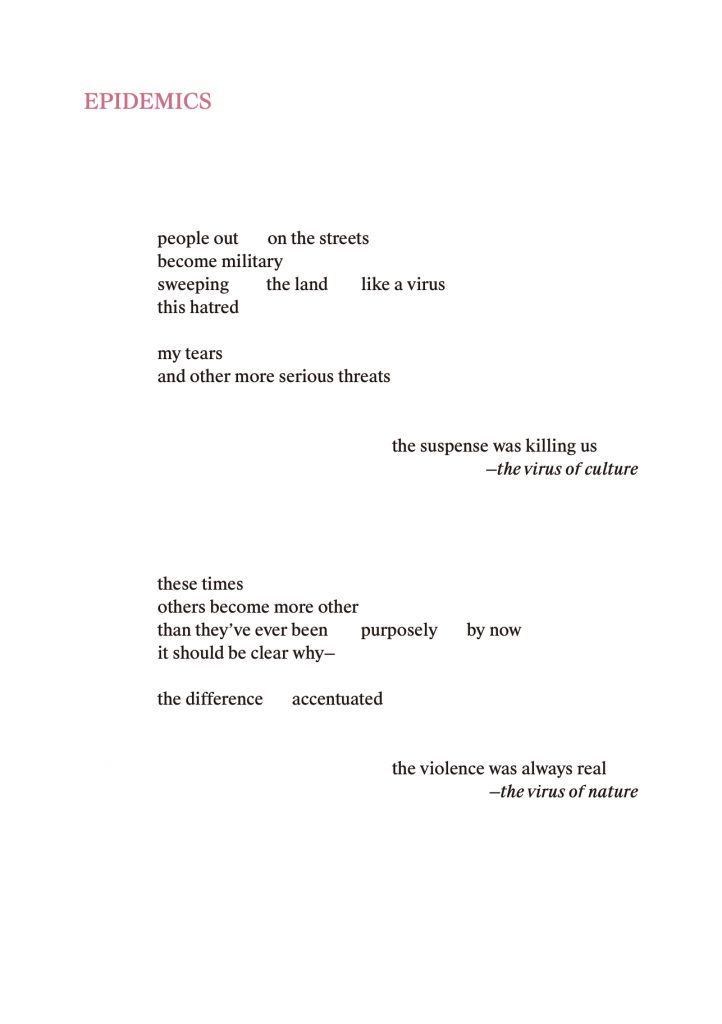
Pedro Neves Marques, Epidemics, from the Viral Poems, 2018, courtesy of the artist and Galleria Umberto di Marino, Naples; Collezione Novelio Furin, Vicenza; Collezione Carlo Danieli, Vicenza; and Matteo Novarese Collection, Bologna
Pedro Neves Marques, Epidemics, from the Viral Poems, 2018, courtesy of the artist and Galleria Umberto di Marino, Naples; Collezione Novelio Furin, Vicenza; Collezione Carlo Danieli, Vicenza; and Matteo Novarese Collection, Bologna

Female Aedes aegypti mosquitoes, endemic to tropical regions around the world, are known vectors of disease transmission, carrying the Zika and dengue viruses to humans as they seek blood to nurture their eggs. In the ongoing quest to control, regulate, and dominate nature, scientists have developed a weapon that interferes with the reproductive systems of these insects. By injecting male mosquitoes with a “lethal gene,” they turn the reproductive act of impregnation into one of coincidental sterilization.
Stumbling upon the “sterile insect technique” in a São Paulo laboratory in summer 2018, artist, writer, and filmmaker Pedro Neves Marques was reminded of the increasing militarization of language and society as amplified by the election campaign of Jair Bolsonaro and resonant in populist sloganeering around the globe. The artist appropriated the jargon of biotechnology and the aspirational language of care and intimacy in a series of twenty-one Viral Poems (2018). Expanding on the idea of infectiousness in pre-pandemic times, Neves Marques uses the example of the Aedes aegypti as a reference for corporeal suppression in the service of national and economic interests.
Through their practice, Neves Marques sought to challenge the institutional confinements of nonbinary life forms with a more intimate and caring approach to planetary coexistence. They experiment with novel forms of writing and filmmaking that operate between theory, documentary, and fiction, finding inspiration in suppressed knowledge systems of the Americas and queer lives in parallel with the history of modern science. With fellow artist Mariana Silva, they run the online platform inhabitants-tv.org, which responds to ongoing struggles of visibility through short videos that adapt modes of activist campaigning, academic writing, speculative fiction, and experimental and documentary film.
The Viral Poems allude to Neves Marques’s recent discovery of the poetic form as the most honest and intuitive way to channel emotional registers emergent in a society of increased militarization and constant alarmism. As the artist has said, “If we are so obsessed with dystopias, why are we so afraid of the word love?”
Pedro Neves Marques, Epidemics, from the Viral Poems, 2018, courtesy of the artist and Galleria Umberto di Marino, Naples; Collezione Novelio Furin, Vicenza; Collezione Carlo Danieli, Vicenza; and Matteo Novarese Collection, Bologna